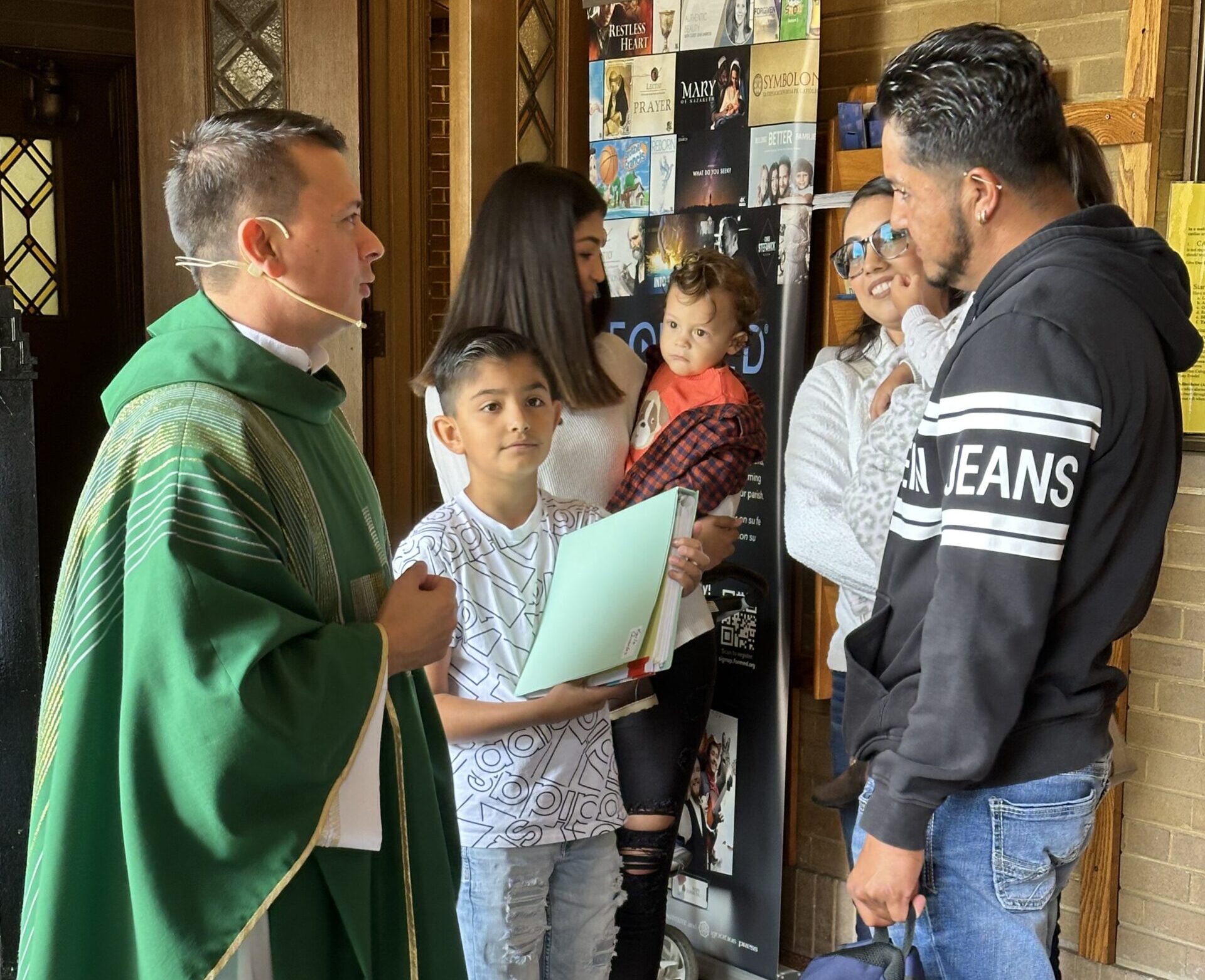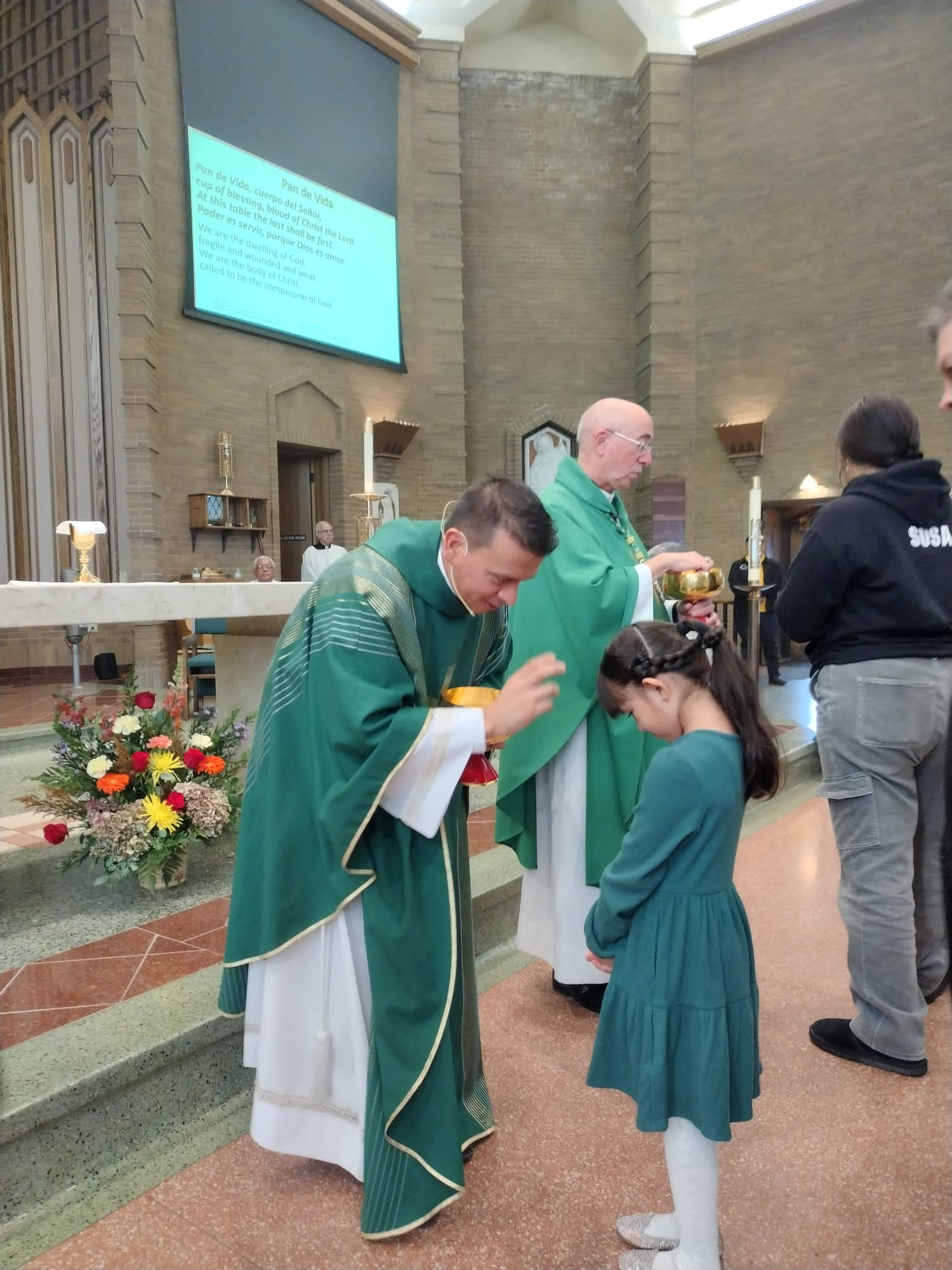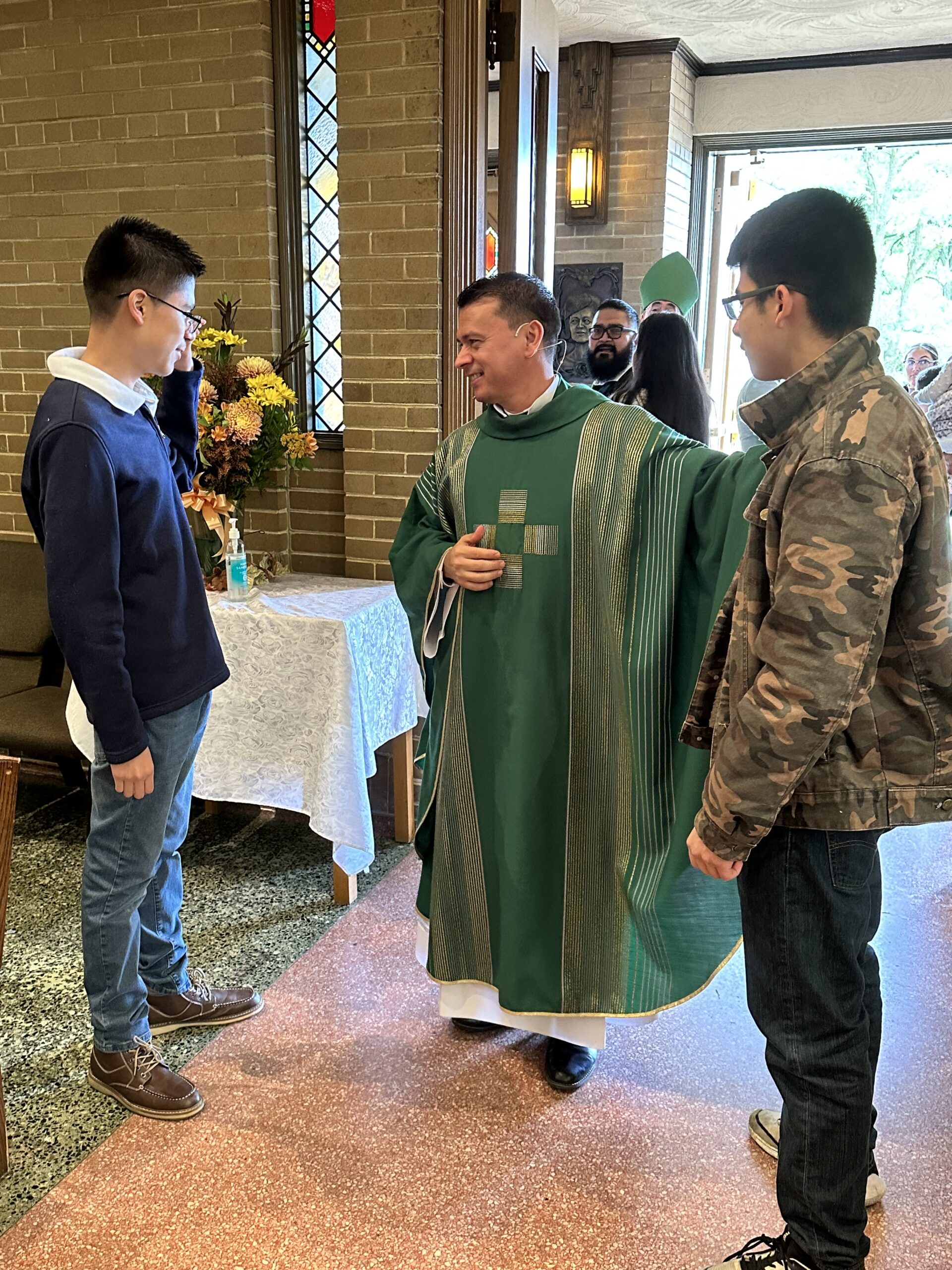
Fr. Juan Camacho has been named the new Vicar for Hispanic Ministry in the Archdiocese of Milwaukee. (Submitted photo)
Fr. Juan Manuel Camacho’s first thoughts were: “Help me, good Lord. This is a lot.”
It was the middle of May. He was sitting in the office of Archbishop Jerome E. Listecki, who had just told him he was being appointed as the new Vicar for Hispanic Ministry in the Archdiocese of Milwaukee.
“I did not expect that,” confessed Fr. Camacho, who is already pastor to three parishes (St. Patrick, St. Richard and St. Edward) in the heart of Racine, and recently added a new parish (Sacred Heart) to his care. “I am a parish priest who does what needs to be done to serve well the flock entrusted to me. That’s as far as I go.”
But he is also, admittedly, a “high-energy person” — so the task laid before him was a thrilling, if daunting, prospect.
The archbishop gave Fr. Camacho a directive: “Give a vision and unity to the Hispanic ministry in the archdiocese.”
“That was exciting,” said Fr. Camacho. It was a mission he was ready to accept, no matter how many hours it added to his workload.
“As we know, our Hispanic faithful in the archdiocese continue to grow,” Fr. Camacho said. “The Hispanic community brings a great sense of family, community and piety to our parishes. These are gifts that we must appreciate and use to revitalize our Church in southeastern Wisconsin.”
Fr. Camacho officially began in this new role at the beginning of August and since that time, has been focusing on building relationships with different departments in the archdiocesan offices. “My priority has been listening to everyone and learning,” he said. “(My predecessor) Fr. Javier Bustos worked hard during his time as vicar to strengthen the Hispanic ministry in the Archdiocese of Milwaukee, and I want to build on that.”
One priority for Fr. Camacho is continuing to implement the aspects of the Archdiocese’s Pastoral Plan for Hispanic Ministry, which included many projects that were delayed due to the pandemic. He said that his office will also work on implementing strategies from the 10-year National Pastoral Plan for Hispanic/Latino Ministry, approved this summer by the United States Conference of Catholic Bishops.
But primarily, Fr. Camacho’s goal is integration and unity between the Hispanic faithful and the non-Hispanic faithful as both move together toward a shared future.
“My vision is to have parishes that fully integrate and include their Hispanic members into the life of the parishes at all levels,” Fr. Camacho said. “There are 34 parishes with Hispanic ministry in our archdiocese. My dream is that those parishes and others that will start are fully multicultural in our archdiocese. We want to see fully integrated communities that are a testimony to the Gospel of Christ.”
Parishes with different language groups “cannot be divided,” he added.
“The Hispanic community cannot go in one direction and the English-speaking community in another. That’s not a testimony of the Gospel,” said Fr. Camacho. “A Gospel-driven parish is the one that integrates all its members with all their gifts and talents.”
This task, said Fr. Camacho, will be “hard, but not impossible. We just need to listen, learn and communicate well to each other. We need also to work on helping our brothers and sisters in Christ to feel part of the parish — not just welcome, but part of it. We must work to empower our Hispanic faithful so that they move from feeling welcome to belonging and from belonging to ownership. That will be the climax of Hispanic ministry in a parish.”
Fr. Camacho was born in Colombia, and grew up on a coffee farm. With a devout mother and several priests in his family, it was inevitable that he would be encouraged to discern a priestly vocation — but the advice “fell on my deaf teenager ears,” said Fr. Camacho, until after high school, when he met a group of members of the Racine-based Community of St. Paul.
“I fell in love with the idea of serving the poor and working in precarious places with the marginalized,” he said. He joined the community and traveled to the Dominican Republic as a missionary and after several years of discernment, decided to pursue the priesthood. He was ordained 11 years ago.
One particularly formative experience so far in his life as a priest has been his seven years of service at the Archdiocese of Milwaukee’s sister parish, La Sagrada Familia in the Dominican Republic.
“One of my main focuses down there was to integrate the Haitian Catholics into the parish with the richness of their culture,” he said, adding that he learned their language to be able to celebrate bilingual Masses on holy days with both the Dominicans and Haitians.
Ministering to both of these ethnic groups required him to deftly maneuver cultural tensions, he recalled.
“I learned that one must be sensitive to all parties. Integration and inclusion in a parish takes time. It is a process in which you want to be mindful of the uniqueness of each ethnic group to be able to bring them together in the parish. You do not want to alienate people,” he said.
This is exactly the kind of “equilibrium” he wants to help pastors work on in the Archdiocese of Milwaukee.
“We do not want to alienate anyone,” he said. “The house of the Lord is for all.”


